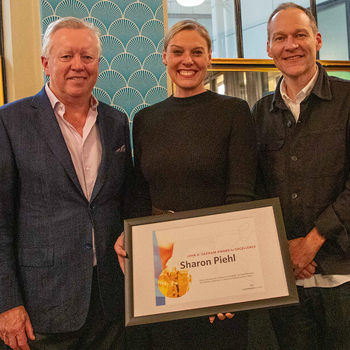
We all rang in this year with a twenty-plenty mindset but for many, this has been one of the toughest years that we’ve had to contend with. Facing the fragility of life, business uncertainty and juggling both career and home responsibilities as we all work from home. But it has become clear that this is no ordinary work-from-home scenario. And as we transformed living rooms into make-shift gyms and dining tables into hot real estate for work, play and school, we were faced with another challenge – the battle to maintain the health of our minds.
In 2019 research by the PRCA and Opinium found that almost all PR professionals are ‘struggling with mental wellbeing’ mainly attributed to factors relating to poor work-life balance. One can only imagine the impact that the pandemic has made on this number. As consultants, strategists and problem solvers we are often hard wired to be one step ahead. But it’s equally important that we invest back into our health by taking charge and taking care of our most valuable assets – our minds. By opting to be mindful and not mind full we choose to be still, present and in control of our thoughts. This aids us not only in servicing our clients and teams more effectively but in turn leading to much more fulfilling careers and lives.
We all know that emphasis on mental health should not be reserved just for the month of October as an awareness month but weaved into corporate culture. However, Mental Health Awareness Month is an opportune time for employers to promote positive well-being in the workplace.
In fact with a global shift from the trend of fitness to wellness, we see more of the global workforce placing higher value on organisations that genuinely care about the wellbeing of their employees. How you treat and invest in your workforce greatly impacts your reputation and ultimately your future success. A recent study showed that 75% of Gen Z respondents said the number one action they wanted to see from brands was that they ensure employee and consumer safety on all fronts[1].
It’s widely documented that the happiness of employees has been known to have a direct link to productivity levels. In fact, a study has shown that teams who score in the top 20% in engagement observed a 41% reduction in absenteeism, and 59% less turnover. It’s no secret that empowered employees that feel happy, inspired and perform optimally. And as a global agency, we’ve always ensured that staff are empowered and equipped with the right tools for success.
To commemorate Mental Wellness month and its importance in the workplace, this year we hosted a session with medical doctor and mindfulness expert Dr Ashika Pillay, who unpacked the benefits of practicing mindfulness. She spoke to us about various techniques we can employ to help train your brain to be still and more aware and in tune with your mind and body.
One that I particularly found useful was the STOP method.
- STOP
- Take a breath
- Open and observe how you are, in that moment without changing how you are, simply noticing as best as you can the rising and falling of the breath and your body in correlation to your environment
- Proceed
We hope that by practicing mindfulness together and talking about the importance of mental wellbeing, we can help employees build mental strength which supports wellness and even mitigate mental health issues. But most importantly, we hope to show that we have no place for stigma in the workplace. That saying “I’m not okay” is okay, that asking for help shows courage, and that actively investing in your mental health is pivotal to the success of us all.
[1] Gen C report from FH London’s Youth and Culture Team
Find Out More
-
Digital Insights Bulletin - October 2024
October 31, 2024
-
Sharon Piehl Wins 32nd Annual John D. Graham Award for Excellence
October 25, 2024
-
Digital Insights Bulletin - September 2024
September 30, 2024


